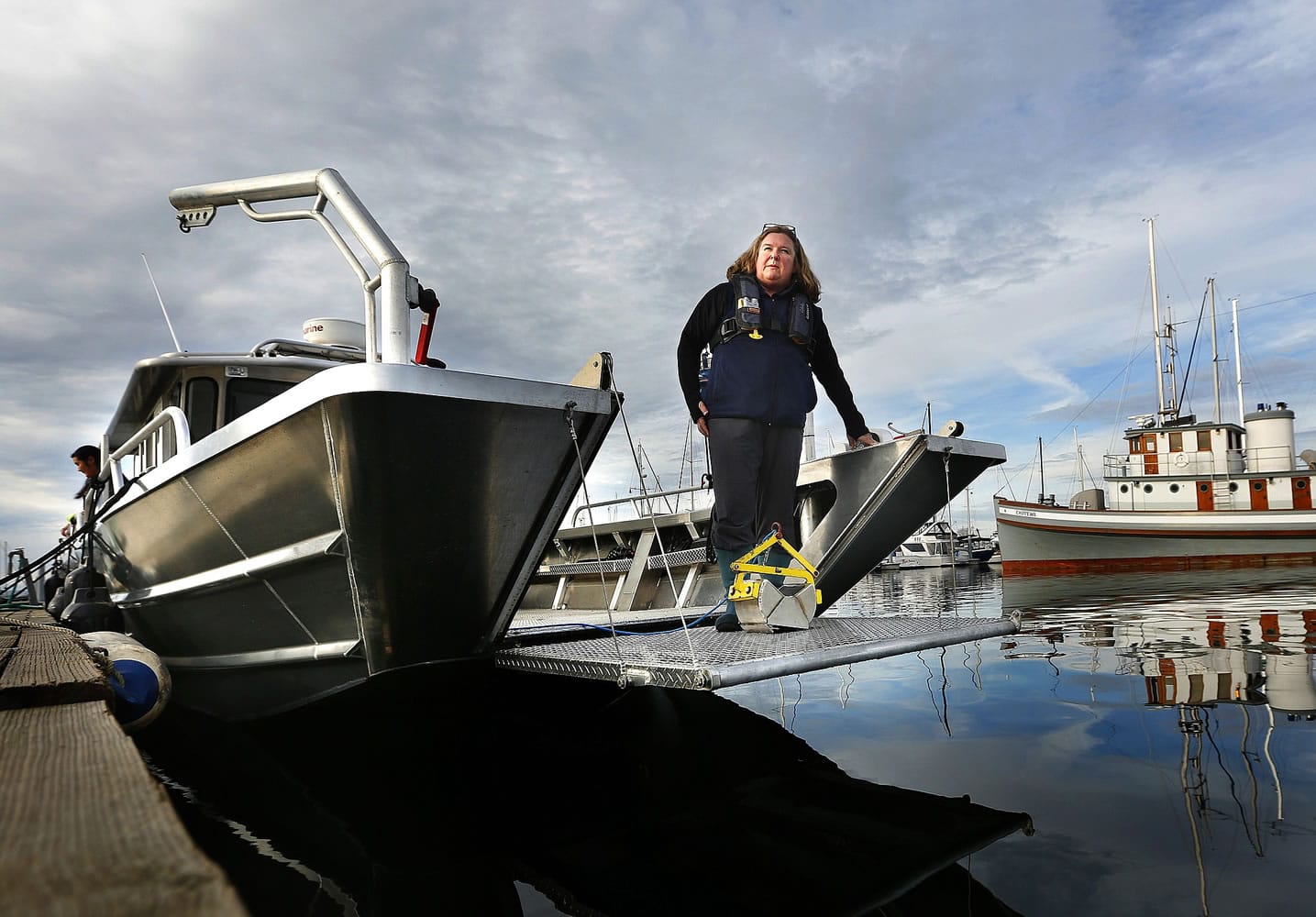EVERETT — Some students at Everett Community College are going to be taking advantage of a new classroom this winter: a 36-foot long work boat custom-built for the school’s ORCA program.
ORCA, which stands for Ocean Research College Academy, is a two-year academic program for high school students that emphasizes and incorporates marine studies into the students’ entire body of work, from the sciences to the humanities.
The program has 97 students.
It also has a new oceanography lab, making it one of the only high school programs in the country with both a lab and research vessel, said Ardi Kveven, ORCA’s executive director.
The new boat, the Phocoena, was funded with a $218,000 grant from the National Science Foundation. A dedication ceremony will be held Saturday on the pier at the Port of Everett Waterfront Center, 1205 Craftsman Way.
Phocoena (which is the scientific name of the genus of harbor porpoises) has a bow door and powered winches, a walk-around deck, a covered cabin and even a toilet. It was built by Bean Marine Fabrication in Clarkston.
For 10 years, the ORCA program has had to charter the Hat Island passenger ferry for research trips out into Possession Sound, Kveven said. The students study marine biology, estuary health, water quality, ocean tides and winds, and have a variety of instruments to draw on.
That posed problems on the ferry, however, because students would have to dangle instruments off its top deck or out windows.
“We’ve lost a few instruments,” Kveven said. “Once we cut the underwater camera cable with the propeller of the Hat Express.”
The other option is the program’s other boat, an open 15-foot inflatable dinghy.
“It was a little cold, a little wet,” Kveven said.
Two years ago, Kveven had applied for a National Science Foundation grant to build an oceanographic research lab. Her grant administrator encouraged her to apply for a separate one for a research vessel.
“I was out in that inflatable when it rained, two Octobers ago,” she said. “It rained six days straight. I said, ‘That’s it. I’m building a boat.’ “
The boat was custom-designed with the students’ work in mind, such as the bow door, which provides easy access to the water for equipment and can also be used for beach landings. It also has diamond plate decks, plenty of storage for equipment, and fold-down tables for laptops and other equipment.
The Phocoena is powered by two Yamaha 250-horsepower outboard motors mounted on a rear bracket.
“One of my goals was to have all of the students and their equipment working forward of the engine,” Kveven said.
In keeping with the ORCA mandate, the boat will help the students with all their studies, not just science, although the new research lab is located on the pier nearby and includes a 120-gallon seawater aquarium, fume hood and fully equipped student islands.
Josh Searle, who teaches English, political science and other humanities courses in the ORCA program, has the students read nonfiction nature writing and think about their relationship with the environment in the context of an essay writing class.
“They have to be flexible,” Searle said. “They have to be able to write in a number of different ways.”
Working on the boat helps the students learn life skills as well, Kveven said.
“They have to collaborate and work as a team. What employer doesn’t want that?” she said. “It’s just such an effective way to learn, and no one else is doing it.”



